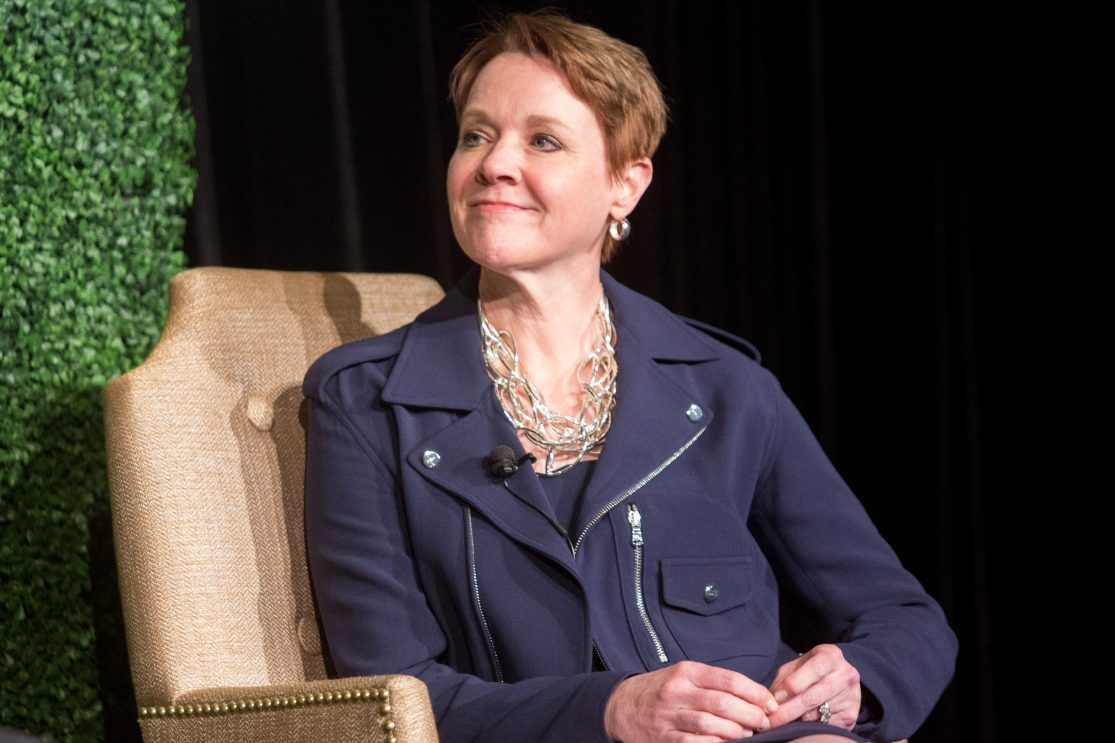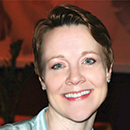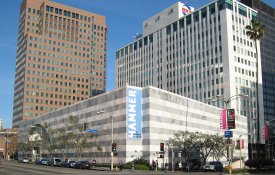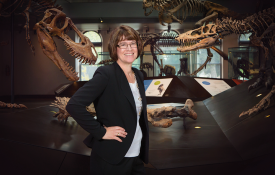It’s a rare accomplishment for a star performer to climb the executive ladder within an arts organization, but that’s exactly what Rachel S. Moore did during her tenure with the American Ballet Theatre (ABT). Moore’s star began rising when she first arrived at ABT at age 15, when the Davis, Calif. native got involved with the organization’s summer program while still in high school. By age 24, she was a prominent dancer in the company when severe foot injury caused her to reassess her life goals. After nine years of intensive studying, she could no longer perform at the level that matched her stringent expectations.
Rather than abandon dance altogether, Moore found a way back—on the inside of the business. Armed with a Bachelor’s from Brown and a Master’s in arts administration from Columbia, Moore forged a distinct path in the performing arts world. After more than seven years as ABT’s executive director and three as its CEO, Moore was enticed to return to California to accept the top job at The Music Center, which celebrated its 50-year anniversary last December. Moore’s tenure began in October 2015.
Recalling her time at ABT, Moore is proud that she was able to reposition the company “from being a world-class ballet company that toured nationally to becoming America’s national ballet company.” Along with refining the ABT brand, Moore has continued to work toward enhancing diversity within dance companies. Moore created Project Plié, an ABT program that acknowledges that “if performing arts organizations are going to be relevant in the 21st century … then what’s on stage needs to look more like what’s in the world.”
Moore’s personal experience as a performer who had to face life after the stage much sooner than anticipated led her to write The Artist’s Compass: The Complete Guide to Building a Life and Living in the Performing Arts (Touchstone / Simon & Schuster), coming out in May 2016. Being an artist, Moore explains, is no longer just about being talented; you have to be educated on the business side as well. “[In] an ideal world, a young artist should fail because their art is bad, not because they don’t understand how to fill out a W-2.”
“It is my biggest hope that at some point I will never be asked why the arts are important; that will be self-evident.”

Rachel Moore with Placido Domingo at a recent gala. Photo: Steve Cohn
Her dedication to education isn’t restricted to performers; Moore sees The Music Center’s education programs as a top priority. “[N]ot only is it wonderful for an individual child to be experiencing the arts, but I think the way into a lot of communities is through arts education,” she says.
In addition to content and programming, Moore is deeply committed to access, which includes finding a way to keep up with the rapidly changing world of technology. “[T]he reality is that the generation under 30 has never experienced the world in a way that’s unmediated by technology.” To bring in new audiences without alienating traditionalists, The Music Center will have to factor in the pervasive role of technology in social experiences. Moore is prepared to incorporate technology into The Music Center’s repertoire, even if that means allowing tweeting during a performance (with a modicum of discretion, of course).
Leaving ABT for The Music Center was bittersweet for Moore. A major factor in accepting the position was having the opportunity to work with a variety of disciplines within the arts, while still maintaining a connection to her first love: dance. “This was an incredible opportunity for me to take my knowledge of dance and education and build on what’s already here and be a part of making The Music Center the heart of downtown LA.”
Moore’s passion shines through when she discusses the transformative power of the arts. Under her leadership, ABT’s endowment, school enrollment, and national presence increased, powered by her drive to expand the influence of the arts. She is counting on carrying that effectiveness over to her new position. “It is my biggest hope that at some point I will never be asked why the arts are important; that will be self-evident.”














































